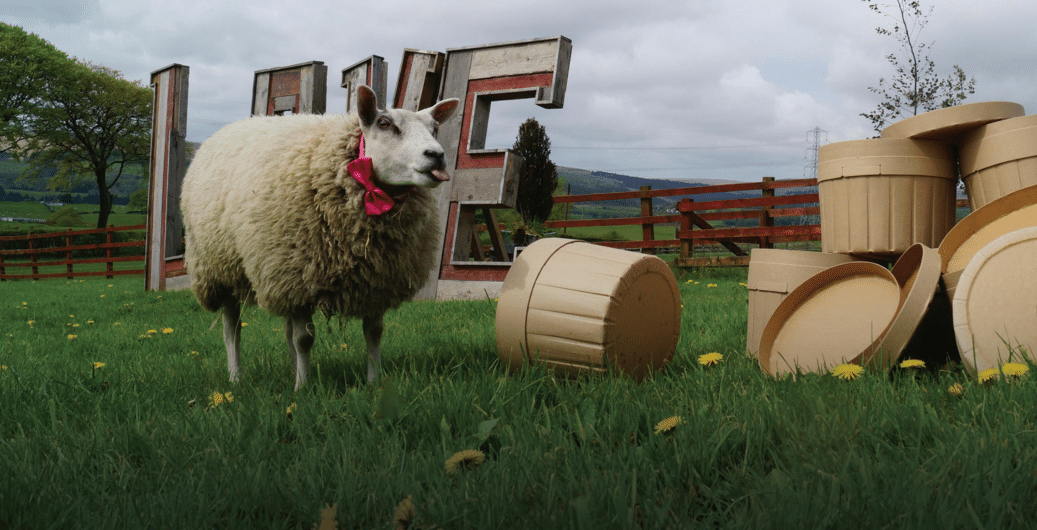A Stockport company has developed a ‘world-first’ edible packaging solution for use in agricultural industries.
‘Nestub’ is a fully biodegradable and edible packaging solution for animal feed, designed to compete with and eventually replace counterparts in agriculture.
Fibrestar Drums worked with the GM Business Growth Hub’s Innovation team to solve the problem of ever-accumulating plastic waste and how to dispose of it.
The £8 million turnover SME provides industrial packaging solutions primarily for chemical and pharmaceutical markets.
Giulia Bonito, product manager at Fibrestar Drums, said: “One day, we got a phone call from the biggest animal feed manufacturers in the UK and they told us that they were using plastic containers for their feed, but were desperate for a more environmentally-friendly option.
“Disposing of their existing packaging was an issue for their farming customers, with many of the plastic tubs ending up either burned or buried or lost in the fields. We’d never served the agriculture sector before, but we’re always looking at ways to improve. So, we listened to what they had to say and then went away and tried to see how we could move into this new area.”
An initial concern was that Fibrestar’s traditional drums were tubular and are stacked one of top of the other, but the agricultural producers needed ‘nested’ tubs that could be stored one inside the other to maximise warehousing space and keep transport costs low.
The company reached out to the Innovation team at GM Business Growth Hub to share and help develop a solution.
Technical expertise
The firm also enlisted help from Manchester Metropolitan University’s special materials department, the University of Salford’s robotics department, Liverpool John Moores University and Lancaster University.
Bonito added: “Talking to the Innovation team at the Growth Hub changed everything for us. We set up some meetings, they listened to our situation and made sure they really understood the challenges we were facing and what we wanted to achieve. Then they worked with us to drive things forward, getting the universities involved to provide technical expertise.
“The result of all this was that we were able to create a 3D model that we could take to the animal feed industry and say ‘This is a design we can make out of fibreboard, these are its specifications, here are the results of the durability testing and here’s a CO2 comparison report.’”
Once prototypes were developed, real life testing found that by using the packaging to store feed meant that it became tasty for animals, and the chemical free construction meant that it was easily digestible.
Yvonne Grady, head of innovation at the GM Business Growth Hub, said: “Nestub represents a major breakthrough for farmers and animal feed producers. They will no longer have to worry about how to get rid of plastic sacks and can rely on their own herds, or the weather, to dispose of packaging for them.”



